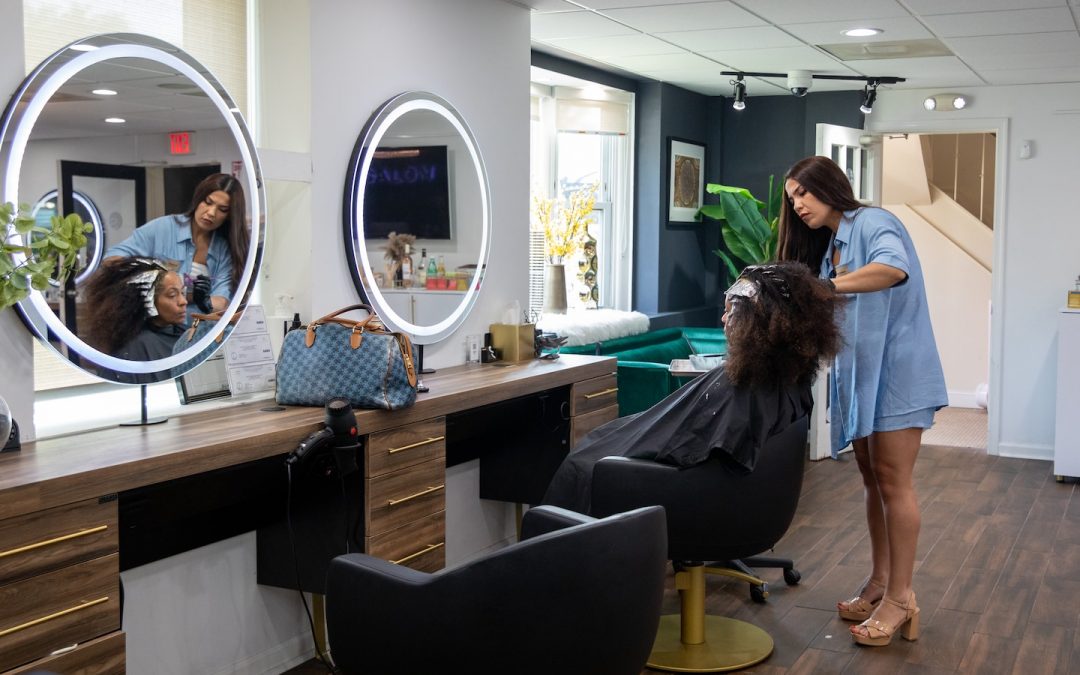Over the past several weeks, households had already cut back on big-ticket purchase because of soaring prices, but in a worrisome twist, data suggests consumers are also beginning to tap the brakes on dining out, vacation plans and even routine services like manicures, hair cuts and home-cleaning appointments. Business owners around the country say rising prices, dwindling savings and concerns of a souring economy are taking a toll on household spending decisions.
At Olentangy Maids in Columbus, Ohio, more customers are putting off or canceling home-cleaning appointments. Some regulars are trying to negotiate lower prices, while others have stopped tipping altogether, co-owner Keith Troyer said.
“It hasn’t been a massive drop off, but enough that it’s been noticeable,” Troyer said. “Quite a few clients have called saying, ‘Hey, my wife got laid off. We need to cancel,’ or ‘Can I switch from biweekly to monthly?’ Prior to this month, that’s something that hardly happened.”
Customers at Salon Simis in Fairfax, Va., have begun cutting back in new ways. Clients who used to come in every four weeks are now going 12 weeks in between appointments, owner Ahmet Sim said. Others are bargaining for lower prices or opting for partial treatments instead of highlights all over. Overall sales are down 20 percent from a year ago. Average tips have also fallen, from about 20 percent to 10 percent.
He tries to work with them, he said, by using lower-priced color lines or passing blow drying services to less-experienced stylists. But he’s feeling the pinch of inflation, too: Boxes of disposable gloves have gone from $7 to nearly $25 in two years. Hair dyes that used to cost $25 are now closer to $40. Sim raised prices during the pandemic, once, but he’s worried another markup would alienate more customers.
While low-income families have been hardest-hit by inflation, higher-income households are also beginning to cut back, especially as they watch investments — from stock portfolios to homes — lose value, Gordon said. Household wealth fell for the first time in two years in the most recent quarter, in large part because of a $3 trillion plunge in the stock values, Federal Reserve data shows.
“I can tell that traveling is down, the tourism is down,” he said. “A lot of higher-middle-class customers used to come into town and splurge, but you can see that dropping pretty dramatically.”
With workers still able to find jobs, the Fed made a sharper move this week to hike interest rates by three-fourths of a percentage point in hopes of cooling the economy enough to curb inflation without tipping it into recession. Despite the central bank’s assurances that it can pull off a “soft landing,” businesses and households are increasingly worried about the state of the economy as well as their personal finances. Indeed, U.S. consumer sentiment plummeted this month to its lowest level on record, according to an index by the University of Michigan.
Indeed, small businesses nationwide are reporting small signs of customers pulling back. Morehead Pools, which specializes in luxury backyard pools in Louisiana, is booked through next summer, according to chief executive Michael Moore. But in a sign that higher-income consumers may be thinking twice before splurging, new queries are down 30 percent so far this year.
“Once you get past $4 [per gallon of gas], everybody’s feeling it at the pump and they’re not making enough on the front end to overcome that,” Moore said in an analyst call hosted by Jefferies this week. “The cost of energy and inflation and then the cost of money … that’s really going to pull back demand in our sector.”
Noffke Roofing in Mequon, Wis., has seen insatiable demand during the pandemic. But lately, economic jitters are leading many customers to patch up their roofs instead of replacing them. Many are also trading down to cheaper materials, like shingles made of asphalt instead of cedar.
This content was originally published here.

